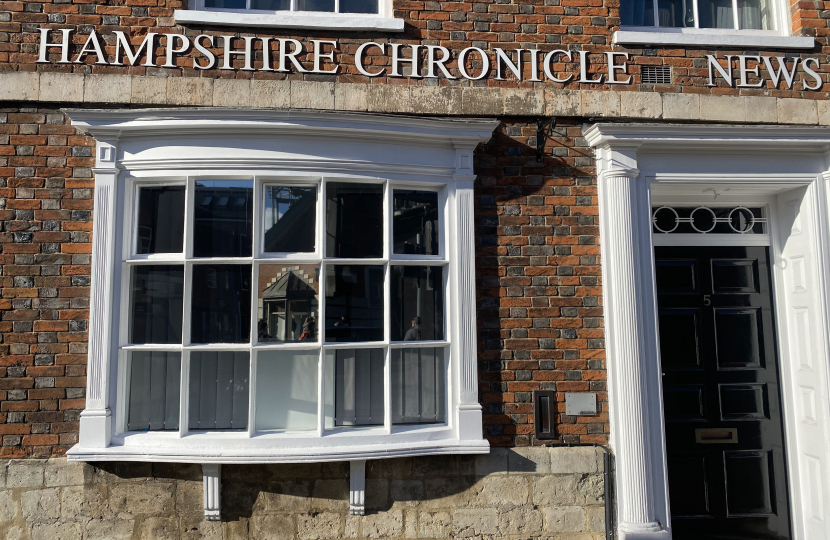
I recently led an important debate on the future of electric vehicles in the House of Commons; a subject I know will be of interest to many readers of the Hampshire Chronicle.
The Government has committed to phasing out the sale of new petrol and diesel cars by 2030 and wants all new cars and vans to be zero emission by 2035. So I posed the question; “are we ready and are we on track to meet this target?”
The debate arose in response to current concerns expressed to me, by constituents and local motor retailers, surrounding the cost and availability of new electric vehicles as well as the infrastructure for charging them as I highlighted concerns surrounding a target of 300,000 EV charge points by 2030 and widespread disparities in the geographical distribution of them across the country.
Winchester is in the top 100 in the UK in terms of charge points per population but I wanted answers from the Minister, Huw Merriman MP, as to how the Government will meet its own ambitious target. And I called for further government grants to be made available following the closure of the ‘plug-in’ car grant scheme last year which saw a big spike in the number of new EV’s sold.
A large focus on the debate was on the worldwide shortage in supply of available vehicles and the almost complete absence – for understandable reasons - of a second-hand market in them at the current time. I pointed out that the average waiting time currently was seven months with many car manufacturers asking customers placing an order for a new EV to wait upwards of ten months. And I highlighted the high upfront cost of electric vehicles which I said acted as a “serious deterrent” to people making the switch without significant spare resources in their household budget.
My sense is, many people want to do the right thing, and make the switch, but the economics do not stack up right now and that’s if you can even source a new electric vehicle given the worldwide supply issues we face. So while I, and many of my constituents, back the phasing out of combustion cars as a move to support the commitment to being Net-Zero by 2050 there remain to my mind legitimate concerns that the 2035 target is attainable.
In reply the Minister said; “The Government are committed to decarbonising transport and to phasing out the sale of new petrol and diesel cars and vans by 2030, becoming the first G7 country to do so. The benefits of zero-emission motoring are there to be won, improved air quality in our towns and cities, economic growth through our automotive industry, and ultimately cheaper and cleaner driving for all. Getting to that point will require Government and industry to furnish this country with an accessible, affordable and secure charging infrastructure network.”
To be fair, he acknowledged there was a lot to do but said there are “reasons to be cheerful”. I hope my debate focused on some of them while shining a light on some of the very real challenges we have to make the change. And it is a change that is needed given transport is the largest carbon emitting sector in the UK making up 27% of total greenhouse emissions with 91% of them stemming from vehicles. You can review, and watch back, the whole debate at stevebrine.com/greenwinchester
Finally, this month’s column goes to print before it was possible to include any substantive details of Wednesday’s Budget but you can find an initial response from me at www.fb.com/SteveBrineMP and more on my website thereafter.

